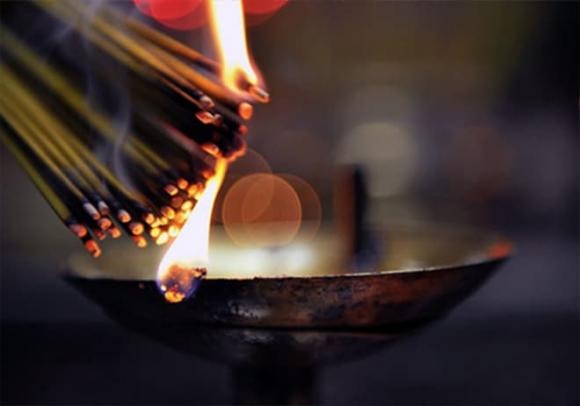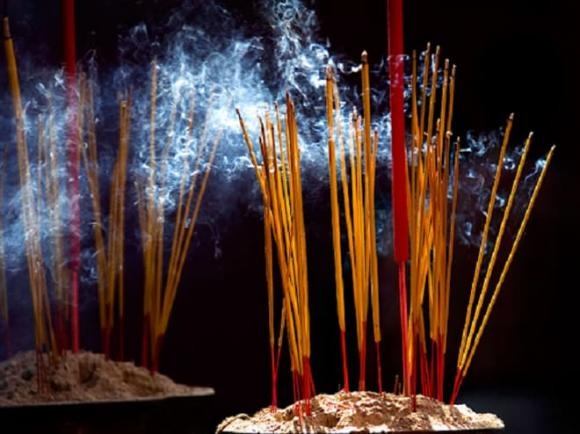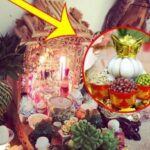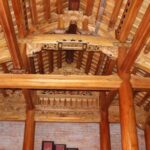The Significance of Incense Offering
The tradition of ancestor worship among Vietnamese people has been passed down through generations, with incense offering playing a pivotal role in expressing gratitude and remembrance for our forebears.

Each stick of incense holds a profound symbolic meaning.
When lit, each stick of incense symbolizes a deep connection to the divine and our departed loved ones. The tip of the incense and the rising smoke represent the realm of the divine and the deceased, while the base and the incense ash holder signify the present world, occupied by the living. The ascending smoke carries our thoughts, prayers, and gratitude to our departed ancestors.
Thus, incense offering is not merely a tradition but a way to preserve and promote our cultural values and virtues, especially filial piety, reminding us of our roots and the importance of gratitude.
Why Incense Offering Is Best Avoided at Night
Evenings are typically reserved for rest, relaxation, and quality time with family after a long day. Hence, lighting incense at this time may not be the most suitable choice.
Additionally, the night can attract wandering or wronged spirits. Regular incense offerings and prayers during this time may inadvertently attract these spirits, leading to potential disturbances within the household. Therefore, unless necessary, it is advisable to refrain from lighting incense in the evening.

Evenings are meant for repose and familial bonding.
Optimal Timing for Incense Offering
Incense offering and tribute presentation to our ancestors have become integral to Vietnamese culture. Typically, this practice is observed during festive occasions, the first day of the month, annual death anniversaries, or significant events. However, some families opt for daily incense offerings to foster a sense of warmth and sanctity in their ancestral worship space.
If you choose to offer incense daily, the ideal time is in the morning, between 6 and 10 a.m. As the day commences, the fragrance from the incense creates a serene and pleasant atmosphere, setting a positive and energetic tone for the family members to start their day.
Taboos to Observe During Incense Offering
The ritual of incense offering and ancestor worship serves as a spiritual conduit, conveying our wishes and messages to our revered ancestors. To ensure the ceremony is performed correctly and respectfully, it is essential to heed the following taboos:
Refrain from cleaning or moving the incense ash holder without a valid reason, and avoid placing unclean objects, such as soil or sand, inside it.
When lighting incense, offer prayers diligently and respectfully. Insert the incense sticks and pray in order of seniority on the altar to demonstrate respect for the most senior ancestors first.
Use an odd number of incense sticks and avoid low-quality or artificial incense to prevent any adverse health effects.
Prepare the offerings meticulously, using fresh and undamaged items, to showcase the sincerity and reverence of the family.
The Top 3 Home-Related Don’ts for July: Superstition or Savvy?
In many cultures, the seventh month of the lunar calendar is considered a time to avoid undertaking any significant home-related projects. Superstition dictates that any renovations or significant changes to one’s home during this period may result in unforeseen troubles and challenges. It is believed that by refraining from such activities, one can avoid any potential negative consequences and maintain harmony within their living space.





































